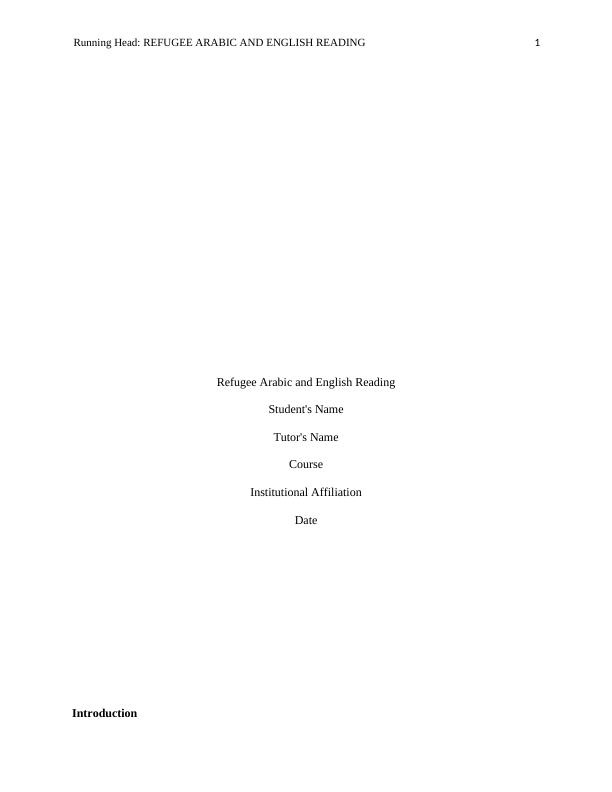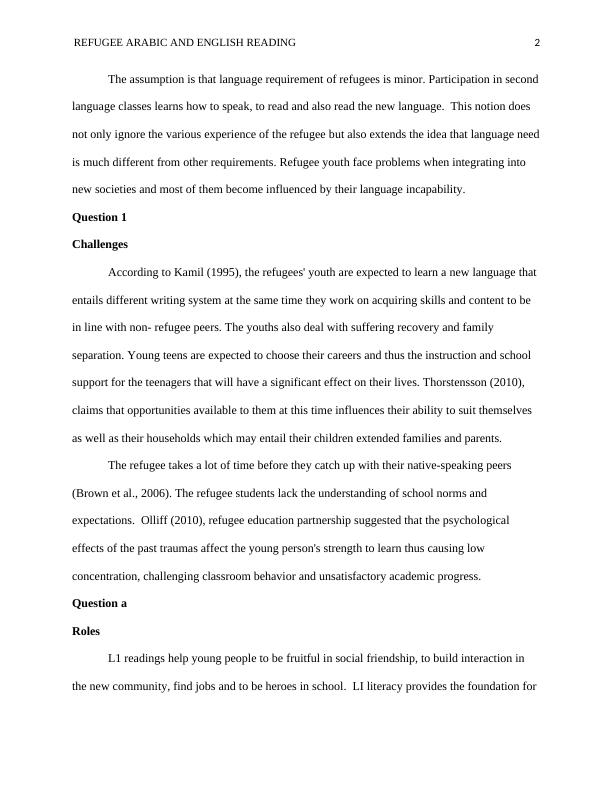Refugee Arabic and English Reading: Challenges, Roles, and Impacts
5 Pages685 Words51 Views
Added on 2023-06-15
About This Document
This article discusses the challenges, roles, and impacts of refugee Arabic and English reading. It covers the difficulties faced by refugee youth, the importance of L1 and L2 readings, and the impacts of L1 proficiency on L2 learning.
Refugee Arabic and English Reading: Challenges, Roles, and Impacts
Added on 2023-06-15
ShareRelated Documents
End of preview
Want to access all the pages? Upload your documents or become a member.
Language and Literacy for Early Childhood PDF
|13
|3651
|520
Teaching English to Young Learners
|14
|4046
|54
Analysis of spoken English language and Corpus Linguistics
|13
|4323
|60
Assignment on Child Development (pdf)
|12
|3270
|34
Enhancing English Literacy Skills through Pollution Reading Program
|11
|2842
|448
Influences of Early English Language Teaching on Oral Fluency and Second Language Pronunciation Proficiency Development in a Classroom Setting
|9
|2422
|472


